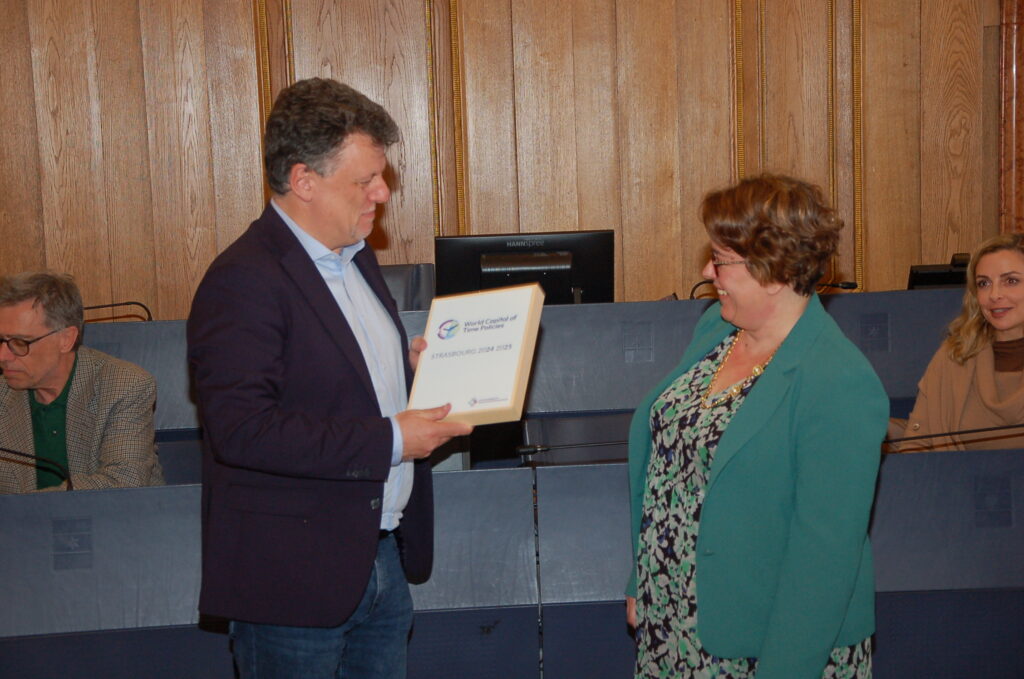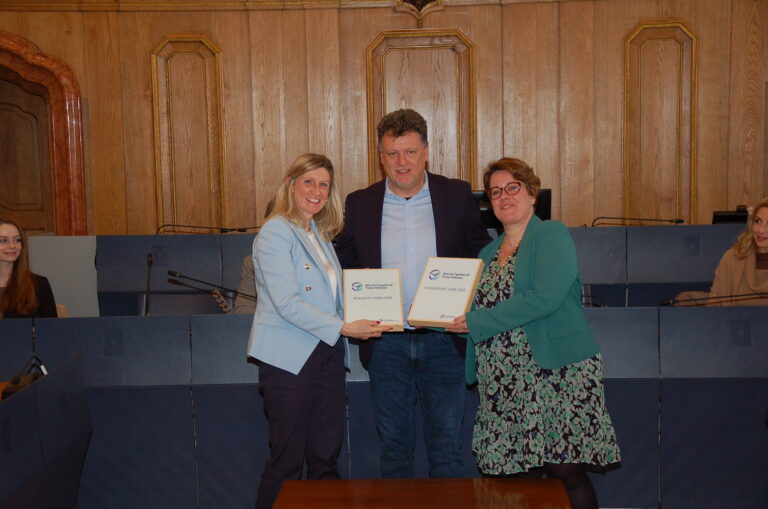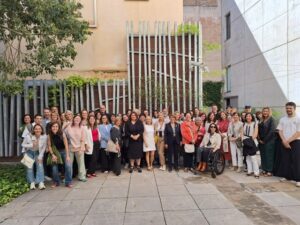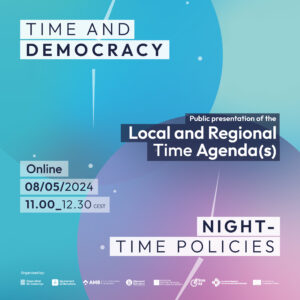Sylvia Profanter, head of the Time Office at Bolzano Municipality, Christian Battisti, Councillor at Bolzano Municipality and Marina Lafay, Councillor in charge of Time Policies at the Strasbourg Municipality.
On March 25, the municipality of Bolzano hosted the handover ceremony of the title of “Capital of Time Policies” to the city of Strasbourg, with a musical and artistic performance by some students of the Pascoli high school of Bolzano, and the participation of Marina Lafay, Councillor in charge of time policies, representing the Strasbourg Municipality.
For a whole year, Bolzano had the honors of being Capital of Time Policies 2023-2024. The title was awarded to our city by the International Network for Time Policies, with its secretariat in Barcelona. Over the year, events and conferences were organised to raise awareness of the value of time and the right to self-determination over it. The activities concluded this March 2024 with the third edition of the Time Week. Now Strasbourg is taking the lead as Capital of Time Policies 2024-2025, developing its own agenda of activities.
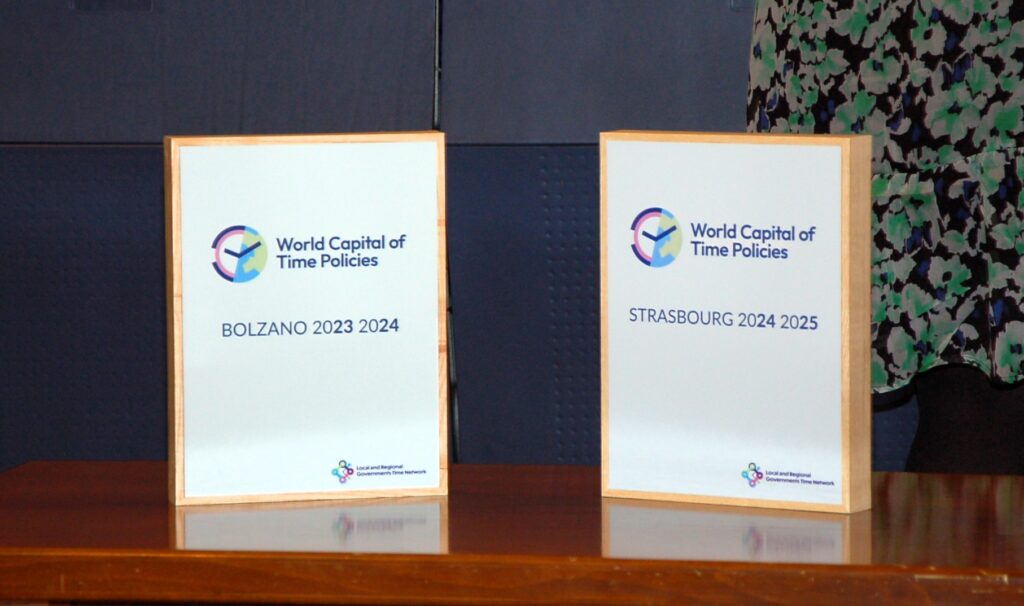
What would the world be like without time?
The Time Week 2024 offered further activities from March 19 to 25 in the city of Bolzano, such as workshops in schools, the distribution of a newspaper, podcasts and a documentary projection in various parts of the city.
One of the main activities in the Time Week was the “5 past 12” campaign. We usually perceive time when we have too little of it. When we feel rushed or constricted by a rhythm that is forced upon us from the outside. Whether at school or at work – people everywhere feel time pressure, acceleration, time incompatibilities and the resultant injustices.
But let’s imagine if clocks suddenly stopped and we had to act solely according to our sense of time. That would be quite a challenge, and that is exactly what happened on March 21 with the “5 past 12” campaign: The clocks on the bell tower of the dome, the train station, the city museum, the town hall, the Sacred Heart Church, Mosele and Ranzi jewelry stores and other buildings in the city stopped from 00:05 AM to 12:05 PM.
The choice to stop the clock “5 minutes past 12” is not by chance. It is meant to symbolize that the time has come to urgently address and discuss some time policy related issues.
Also in Bolzano, on March 21, a small lounge was set up in Walther Square. Passengers could stop, have some tea and watch the immobile hands of the dome clock: an encouragement to reflect on the meaning of time, how we want to use it, and most importantly as a reminder that 120 years ago the city of Bolzano adhered to Central European Time, which was already recognized in other neighbouring countries, representing one of the first concrete sign of unification of European countries.
A special tour was also offered by the Bolzano Tourist Office to discover “time in space” in the city of Bolzano, with stops at historic buildings where clocks tell interesting stories, not just the time.
Now it is time to Strasbourg to show the world the importance of time.
